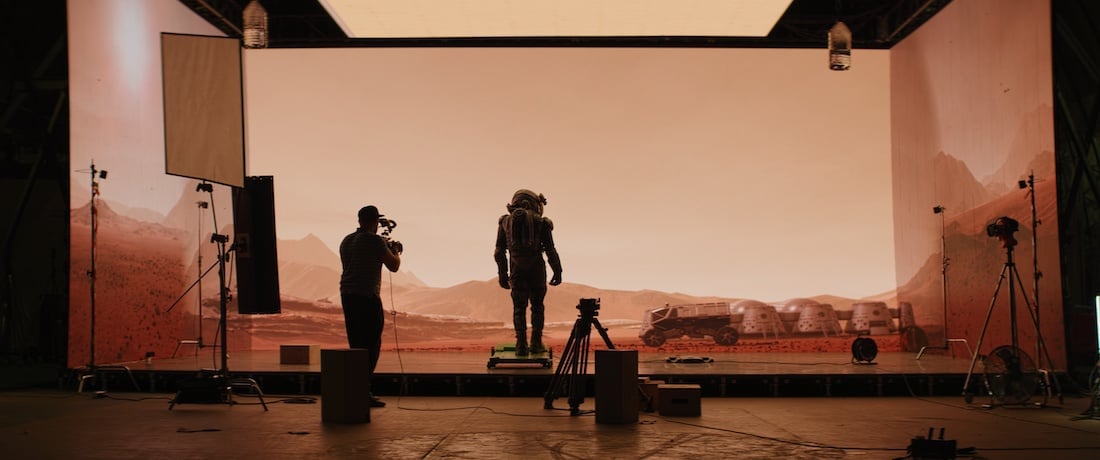What Does the Life of a Screenwriter Look Like?
August 29, 2023
Have you ever wondered: what does the life of a professional screenwriter look like?
Essentially, screenwriters are freelance workers and every screenwriter’s experience is going to be different. Various factors dictate what your life is going to be like: the level of “Heat” you have (i.e., how much people want to work with you), whether or not you’re a proven commodity (i.e., you’ve written several films that have been produced and some were even successful), how prolific you are and how many projects you’re working on. Also whether or not you live in LA might factor into your lifestyle.
However, if we’re breaking it down to the basics, I can help you get an idea of what life looks like for a professional screenwriter. If you sell a screenplay and/or get assignment work, your life is likely to contain the following…
Writing
This might sound obvious enough, but it needs to be stated: if you’re a professional screenwriter you’re going to be writing a lot. It’s your job after all. So be prepared: there’s going to be an ungodly amount of writing if you become a screenwriter!

Day after day, week after week, month after month, year after year, it’s you sitting at a desk (ideally you’re sitting at a desk and have a comfortable chair). If the idea of sitting in front of a computer screen all day long for a large portion of your life isn’t appealing, once again: a screenwriter’s life might not be for you.
However, if you do love writing and don’t mind sitting in front of a computer for long stretches of time, the screenwriting life might very well be for you. I love writing with a passion and I can tell you there’s nothing more rewarding than getting paid to do what I’d gladly be doing for free. For me, that’s the best part.
Pitching
In some cases you might sell a spec script (i.e., a script you weren’t initially paid to write), but most of the time you need to pitch your concept to a studio or production company. Ideally, you’ll be pitching to more than one studio or company and go on “a pitch tour.” In the past, this was usually done in person, but these days much of the entertainment industry operates remotely and many screenwriters pitch their ideas over a conference or Zoom call.

What’s even more common is producers pitching you their ideas. Sometimes this happens during a general meeting (a.k.a. “a general”) after a producer or studio exec has read your spec script and liked what they read.
Other times the meeting occurs specifically because a production company or studio has an open writing assignment and they’re looking for a writer or writing team that best suits the project. If they like what you have to say in the meeting, the producer or exec will start to flesh out the concept with you.
Development
The above scenario leads you into development: during this stage, you’ll be working with a producer or studio exec (sometimes more than one) and fleshing out the concept. In the past, this was sometimes done in person, but like many meetings in the film business, they’re largely done via a phone or Zoom call these days.

Usually, a writer will be asked to write a treatment, which can range anywhere from 6 to 12 pages. The producers or execs will have notes and you’ll be expected to revise your treatment per their notes. This process can take several weeks or months. When all parties involved are happy with the treatment, you’ll pitch it to whoever has the power to greenlight the project and ideally it’ll lead to a job. For more information on notes, feedback and coverage, check out this great guide on ScreenCraft.
After you’ve been officially commenced to write a screenplay based on your treatment and you delivered the first draft, you’ll begin another development process: this one focused on turning your screenplay into a producible script (i.e., they can attach talent to it, obtain financing and get it produced into a feature film). This stage of development can take several months if not years.
Rewriting
During the above stage of development, the producers or execs attached to the project will give you a lot of notes on your screenplay. You’ll be expected to rewrite your script accordingly. At a certain point — if you’re lucky — a director and movie star will become attached and they’ll likely also have script notes.

Depending on your temperament, you might not like the idea of rewriting your screenplay over and over again, but it’s one of the primary jobs of a screenwriter. Screenplays are often viewed as “a fluid document” by industry professionals and it’s not considered finished until the film is “in the can.”
This is one of the reasons why it’s important to love writing if you want to be a screenwriter: whether it’s a first draft or a tenth draft, you’ll be doing a lot of writing.
Production
Even during a film’s production, a screenwriter might still be involved in the project. If you were the writer of the latest draft, there’s a chance you’ll be asked to do a “production draft” in which you need to make certain changes for either logistical or budgetary purposes (e.g., new locations, scaling back certain set-pieces).

Also if you have a good working relationship with the director or producers, you might be on set while the film’s being shot. Oftentimes there needs to be “on the spot” rewrites of the script due to unforeseen production developments, an actor’s suggestion or any situation that requires quick thinking and writing.
Being on a film set is one of the most exciting parts of a screenwriter’s life: you get to witness all of the collaborative ingenuity it takes to make a motion picture. There’s a kinetic energy on a film set that’s intoxicating. And when you first hear an actor speaking lines you’ve written months or years prior — at home and in front of a computer — it’s an extremely rewarding moment.
Premiers and Other Industry Events
Other exciting and rewarding moments are when you’re invited to a movie premier or other industry events (e.g. an award ceremony, or film festival). The frequency in which you take part in these events will depend on your location and career status. But if you’re a working screenwriter — whether you’re writing studio tentpoles or indie films — you might want to own at least one nice suit or dress.

Like being on a film set, movie screenings and other industry events are a nice break from writing at home (which, once again, is what you’ll be doing most of the time).
Back to Writing
Even if you’re lucky enough to have your script turned into a film and you’ve been on set and to the premiere, you’ll have to return home and get back to writing.
If you have Heat, there will be other projects to work on. If your Heat has faded, your reps will want you to write a new spec script: this is because over time the marketplace changes and you’ll be expected to change along with it. A new spec can work as a new writing sample that’ll rekindle interest.
This is why I keep stressing how much writing is part of a screenwriter’s life. Ultimately writing is the thing that’ll help you to sustain a long-term career in the film industry and to achieve this, writing has to become its reward.
So what does the life of a screenwriter look like?
Above all it looks like writing.
Written by: Edwin Cannistraci
Edwin Cannistraci is a professional screenwriter. His comedy specs PIERRE PIERRE and O’GUNN both sold with more than one A-list actor and director attached. In addition, he’s successfully pitched feature scripts, TV pilots and has landed various assignment jobs for Universal, Warner Bros, Paramount and Disney.- Topics:
- Productivity & Inspiration




